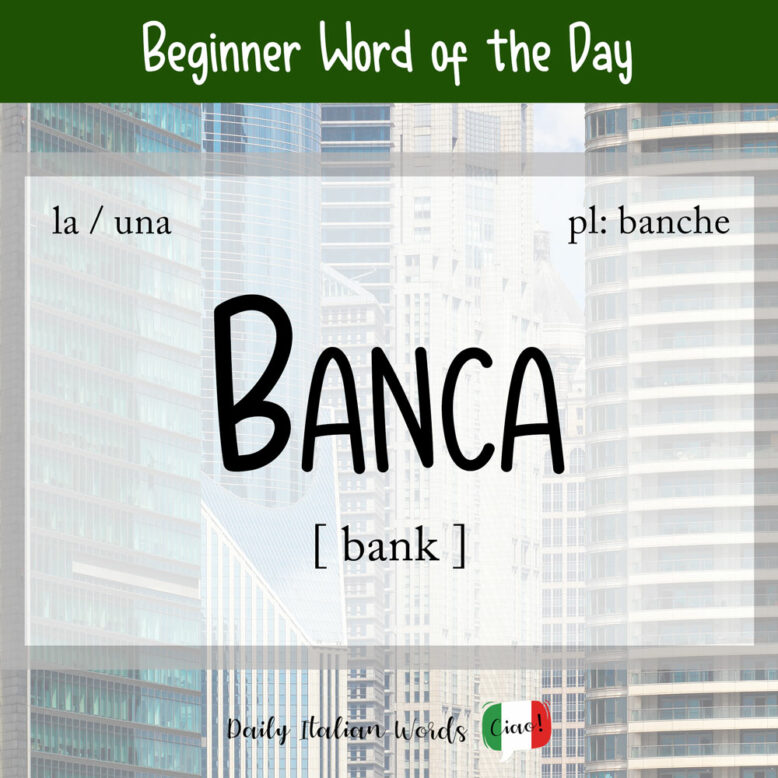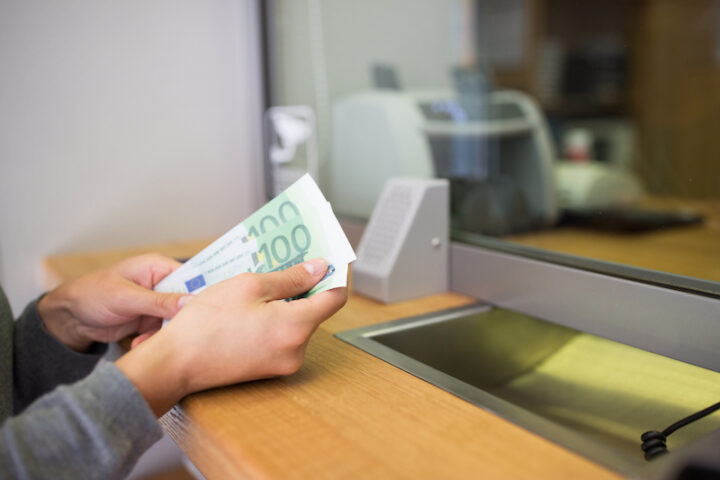The word for bank in Italian is banca (feminine, plural: banche).

Banca and its masculine form banco are two Italian words that derive from the same etymology: the Germanic bank meaning bench.
While banco has more or less retained its original meaning throughout the centuries (desk, work bench), the feminine banca came to be used specifically in reference to credit institutions and the buildings in which they are located.
That being said, in contemporary Italian, banco may still be used to talk about specific financial institutions such as the now defunct Banco di Napoli (Bank of Naples) or Banco di Roma (Bank of Rome). (Source: Treccani)
Below are some common verbs you’ll see used with the word banca:
- andare in banca = to go to the bank
- mettere in banca = to put in the bank
- depositare denaro in banca = to deposit money at a bank
- prelevare / ritirare denaro in banca = to withdraw money from the bank

There are two ways you can withdraw money from your bank account (conto bancario / conto in banca). One is to go into your local branch (filiale) during banking hours (orari di apertura della banca) and deal with a bank clerk (impiegato/a di banca) at the counter (sportello). The other is to use an ATM (sportello automatico). Either way, you will need to make sure that you have your debit card (bancomat) with you.
Vado in banca ad aprire un conto.
I’m going to the bank to open an account.
The two main types of accounts most people have are un conto corrente (a current account) and un conto di risparmio (a savings account), both of which are accessible via banking online (online banking).

The adjective bank translates as bancario in Italian, which is also another way of saying bank clerk or teller when used as a noun. Some common terms you’ll come across include:
- assegno bancario = bank cheque
- bonifico bancario = bank transfer
- vaglia bancario = money order
- gruppo bancario = banking group
Just as in English, banca may also refer to a place for storing other valuable goods or materials besides money. These include:
- banca del sangue = blood bank
- banca del seme = sperm bank
- banca dati = database (lit: data bank)
- banca dei geni = gene bank
Heather Broster is a graduate with honours in linguistics from the University of Western Ontario. She is an aspiring polyglot, proficient in English and Italian, as well as Japanese, Welsh, and French to varying degrees of fluency. Originally from Toronto, Heather has resided in various countries, notably Italy for a period of six years. Her primary focus lies in the fields of language acquisition, education, and bilingual instruction.


